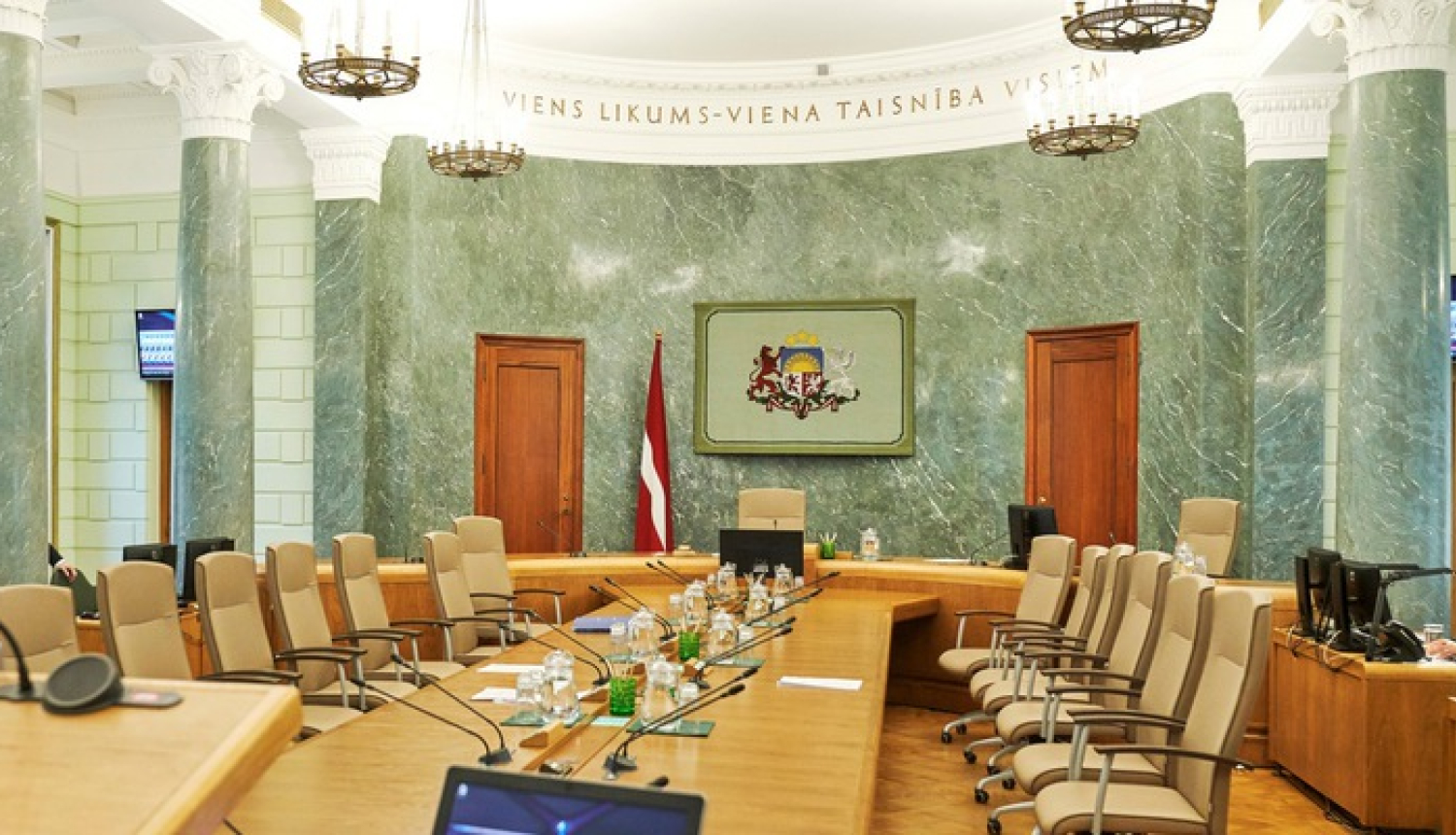On Tuesday, 28 July, the Cabinet approved several changes in regulations, governing epidemiological safety measures to control Covid-19. They will enable the educational process to take place in person, and entrepreneurs, in particular in the areas of agriculture and culture, to resume or expand activities. At the same time, the system for control of the spread of Covid-19 will be strengthened, thus balancing economic development with the interests of public health.
The government approved amendments proposed by the Ministry of Education and Science to the Cabinet Regulation, permitting the resumption of full-time studies in all educational institutions in September. In the new academic year the educational institutions will be able to organise their work according to three scenarios. Primary studies should be organised in person. If distance cannot be provided in the areas of public use of schools, students of senior grades may partially have distance studies. But if a case of Covid-19 infection is detected, distance learning should be provided for all classes. The requirements for physical distancing should not be met within one classroom or group, but overlaps between classes or groups need to be avoided.
If the educational institution is not able to ensure distancing, as a result of which there are too many people in the premises of public use during breaks and events, the school should plan the learning process partially remotely. Full-time studies will only take place for grades 1 to 6. However, in the group of grades 7 to 12, the educational institution may partially organise the learning process remotely, in order to reduce the risk of crowding and ensure physical distancing. Vocational education institutions will be able to partially organise distance learning in all courses and groups.
Each school will need to prepare an action plan in the case if Covid-19 is diagnosed at the school, determining how learning can take place remotely for all classes.
In accordance with epidemiological safety regulations, kindergartens will be able to continue operating as before. The requirements for the organisation of children's camps and conducting interest education classes also remain unchanged.
Universities and colleges also determine their own internal procedures and responsible persons for the organisation of work and compliance with safety requirements. Depending on the capacity of each higher education institution or college, they shall also determine the procedure for the distance learning process, in particular to make it available to students who will not be able to attend full-time studies due to travel restrictions or self-isolation requirements.
The amendments made by the Cabinet of Ministers to the Cabinet Regulations open the possibility possibility for a broader course and attendance of cultural events.
From 1 August, libraries, cultural centres, exhibition halls, open-air stages, theatres, concert halls, cinemas and outdoor events will have to maintain a distance of one metre or a barrier will have to be installed between the fixed and personalised seats. The observance of physical distancing rules is still in force in the premises of public use for such cultural events (cafe, facilities, lobby and other premises).
The amendments made by the government to the Cabinet Regulation facilitate the organisation of significant international sports competitions. The changes provide that athletes and sports staff, when presenting a negative Covid-19 test, may arrive from the countries of risk listed on the website of the Centre for Disease Control and Prevention. Athletes and sports staff will have to perform Covid-19 tests once again on the next day after arrival to Latvia and, if the infection is not detected, will be allowed to participate in training and the competition. During the rest of the time, self-isolation must be observed. If the athlete stays in Latvia for longer than five days, a repeated Covid-19 test should be performed.
Similar conditions will apply to foreign workers, including cultural workers as of 1 August. The new procedure stipulates that foreigners will have to take the Covid-19 test before the commencement of work duties. This means that the person will have to be in self-isolation until he/she receives a negative test result and only then will he/she be able to go to perform work duties. In turn, on the 5th-7th day after departure from the country, subject to precautionary measures, the test will have to be repeated for the second time as far as the Covid-19 infection may be detected later (most often on the 5th-7th day after infection).
In order to prevent the uncontrolled spread of Covid-19 infection from foreigners, the requirement will be in force under the Cabinet Regulation as of 1 August, for everyone arriving to Latvia by personal transport from Russia and Belarus to submit a completed questionnaire to the border guard when entering Latvia on the countries visited during the last 14 days, the selected place of self-isolation and information on how to contact the foreigner.
Amendments to the Cabinet Regulation, adopted during the meeting of the Cabinet of Ministers on 28 July, will come into force on 1 August 2020.
Reinis Grāvītis
Press Secretary of the Cabinet of Ministers
Telephone: +371 67082919
E-mail: Reinis.Gravitis@mk.gov.lv



